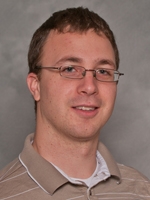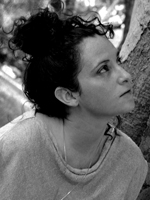One of the challenges for graduate trainees is being savvy enough to set a future career direction and pursue additional experiences outside the academic program in order to be well-equipped when it is time to send out job applications. There is wide recognition that, with respect to this challenge, the game has changed. This year the SOT Graduate Subcommittee initiated the Supplemental Training for Education Program (STEP) funding to make it easier for students to pursue opportunities for training in identified areas of professional/scientific development that are necessary for them to achieve their career goals, but outside the immediate scope of their graduate training. Three applicants were selected for STEP funding.

Matthew Wolter, University of Wisconsin-Milwaukee, completed the course Effective Risk Communication: Theory, Tools, and Practical Skills for Communicating about Risk at Harvard University in May. His research mentor is Kurt Svoboda. Mr. Wolter is among the first Environmental and Occupational Health students in the new Zilber School of Public Health; courses in communication and risk assessment are not currently available. He and his advisor feel strongly about an environmental health professional having the ability to communicate effectively and, thus, he enrolled in this course. He participates in Toastmasters to polish his speaking skills and is engaged in leadership activities including serving as the President of the Public Health Graduate Student Association, organizing the first School of Public Health Annual Graduate Student Research Symposium and school blood drives, and monitoring and cleaning with Milwaukee RiverKeeper®. 
Rance Nault, Michigan State University, will attend the Biomedical and Engineering Entrepreneurship Academy at the UC Davis Child Family Institute for Innovation and Entrepreneurship/Superfund Research Program in July. Tim Zacharewski is his advisor. During his dissertation research, he gained research skills in bioinformatics and data interpretation and was involved in the development of a computational tool to automate the quantitation of histopathological features in a high-throughput manner. This tool could be commercialized. He now seeks an introduction into biomedical research commercialization and the opportunity to learn from and interact with those who are actively involved in commercial applications of scientific research.

Alexandra Muñoz will be attending the Masterclass on Topological Quantum Field Theories, Quantum Groups and 3-Manifold Invariants at the University of Copenhagen in October. Her advisor at New York University Medical Center is Max Costa. Ms. Muñoz also received a 2013 Colgate-Palmolive Award for Student Research Training in Alternative Methods and visited the University of Applied Sciences in Switzerland to investigate the use of multivariate analysis and fuzzy modeling to detect nickel and arsenic-induced gene signatures in microarray data. She will seek a postdoctoral position that bridges toxicological research and computational physics/chemistry so this course will provide additional training in quantum theory and mathematics. She plans to use computational physics to model molecular interactions at the quantum level in order to improve prediction of toxic substances using ab initio computer modeling.
The Graduate Subcommittee and Education Committee will be evaluating the outcomes from these experiences to determine whether the program should be continued. In addition, the activities proposed in the STEP applications are indicators of the types of supplemental training desired and will inform the planning of additional efforts.
SOT provides many opportunities for professional development at the SOT Annual Meeting, through leadership groups such as the Graduate Student Leadership Committee, the Postdoctoral Assembly, Regional Chapters, Specialty Sections, and Special Interest Groups, webinars and career sessions, and through awards. For another example of how a combination of SOT activities supported the career path of an SOT graduate student, see SOT: A Graduate Student’s Perspective by Agnes Forgacs.